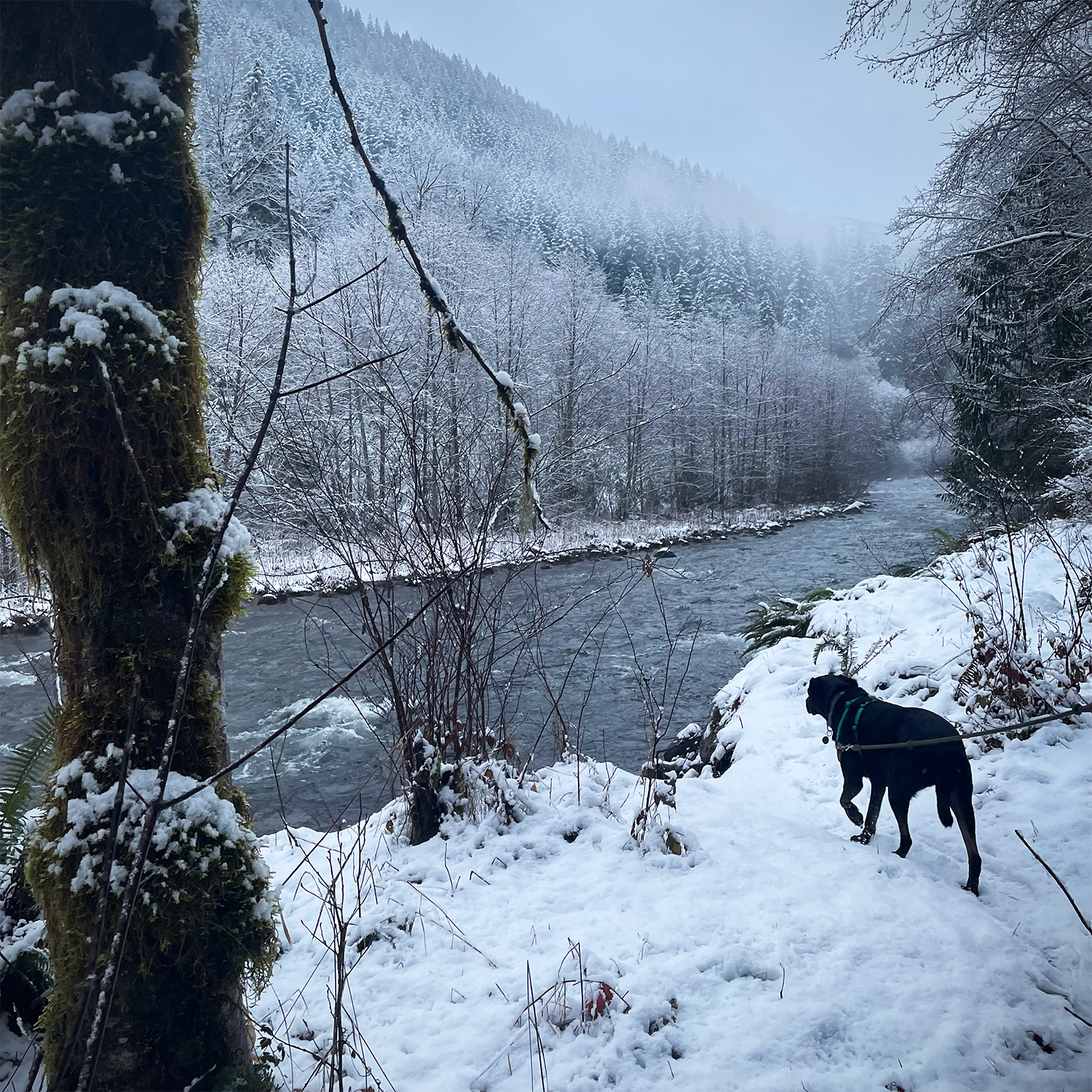ianua

Christmas day. Light snow overnight, everything looking somewhat magical – clear and fresh. We plan a walk to the river, because it is a challenge getting the dog to cross the highway, but later she can run off-leash without the likelihood of encountering anybody (though who would one expect to encounter at just after sunup on Christmas day – aside from the unsociable individual who has had just enough of family time, thanks).
We cross the highway and walk down the gravel road, following the steps of the unsociable through the snow (at a respectful distance) and quibble about how to manage the dog in the presence of people (a person); we are grateful when the unsociable turns down a side road so we can continue the planned walk to the river. We reach the river and turn down our favorite path; there are a pair of trees that mark, as we think, a boundary to the wilderness, the edge of the developed lots – a gateway. That is where we let the dog off the leash. She stops and sniffs the snow and ferns and moss.
You try to capture the moment that changes things, when a choice or action (your own, another’s) sets you on a course that you would not select if all options were placed before you. It’s hard to recognize. But, noticed or not, the gate latches shut behind you, and you keep moving forward.
Walking along the river, clearing through the snow on the path, we talk; it’s a good path for talking – more or less flat, with some twists and turns, small landmarks: a small stretch of sandy beach, a nurse stump, a turn along a meander, fallen trees, a twist through the brambles, and then the crossroads (time to turn around). As we walk along the river, we call the dog back occasionally, so she doesn’t get into anything, doesn’t get lost, doesn’t fall into the river which is cold and high and fast this time of year. Normally she scouts along ahead, coming back to beg for treats, then pursuing her research, which may someday become part of a formidable dissertation on the odors of ferns. We reach the crossroads.
We are talking, I think, about Coriolanus and Shakespeare’s villains, although we have walked along there so often that I might be misremembering. We reach where the brambles would be, if they had not been cleared before the snow. We look around. And realize it has been some time since we had seen the dog. We call her name, but do not hear her crash through the underbrush or leap through the snow. Hear nothing but the sound of the river. ‘I guess,’ I said, ‘we don’t have a dog any more.’
We continue walking and calling, a bit louder, more strident – but moving towards home, because when the dog has chosen not to respond to her name, she has still been worried about being left behind and generally comes running when we are out of sight. This time she did not. So we turned around and started to head back, stern now – and finally she ran up out of the woods, not from the river, but from the south. She grinned, satisfied and smelling of fish.
We scold and walk home, talking about animal attacks and mountain lions and bears and how bears don’t like dogs and dogs don’t like bears. At the gateway, we clip on her leash.
I look back. The gaze of the forest feels heavy. Futurity watching from the trees. It is silent. Except for the river.1
- A week later the dog was unwell. We got her to the animal hospital in time, where she was treated for salmon poisoning. After a week – during which the petty pace of day to day stretched out, as when one travels to a foreign land – in the ICU, the dog is home again. It was a hard week. [↩]
